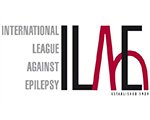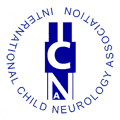Inflammatory Encephalopathies
Inflammatory encephalopathies are diseases or conditions that affect brain function or structure. They are often the result of infections or irritating processes that cause swelling and pain.
Causes
Most inflammatory encephalopathic conditions are caused due to infections by viruses, bacteria, or other germs. In some cases, the body wrongly responds to the infection by creating antibodies that attack the brain cells leading to inflammation. The infection may also be walled off in one section of the brain forming a brain abscess or the infection may be limited to the membrane surrounding the brain resulting in meningitis. Inflammatory encephalopathy can also be caused by trauma to the head or due to genetic abnormalities.
Impact
The changes caused by this condition are often noticed by the parents or others relating to the child. Your child may have trouble with focussing or memory, decreased problem solving skills, mood changes, lethargy, and drowsiness.
Symptoms
Possible signs and symptoms include fever, headache, increased fussiness, restricted eating, muscle weakness and twitching, difficulty with speech, and loss of movement or feeling in the limbs.
Diagnosis
To diagnose the condition, the doctor will discuss your child's symptoms and medical history. A complete physical and neurological examination will be performed. The doctor may also order tests such as brain imaging studies to confirm structural changes, a spinal tap or blood test to identify an infectious agent, and an EEG to detect abnormal electrical activity.
Untreated
Untreated inflammatory encephalopathy can result in speech, hearing, and vision changes; cognitive decline, loss of neuromuscular coordination, and in very severe cases coma and death.
Treatment-options
Mild forms of inflammatory encephalopathy may be treated with bed rest, plenty of fluids, and anti-inflammatory medications. In case of a viral or bacterial cause, the appropriate antiviral or antibiotic may be prescribed. Supportive care in the hospital setting may also be given for severe symptoms such as breathing assistance, monitoring of vital signs, intravenous fluids, steroids, and anticonvulsant medication. Long term care would include rehabilitative physical therapy, speech therapy, and psychotherapy to learn coping skills.








